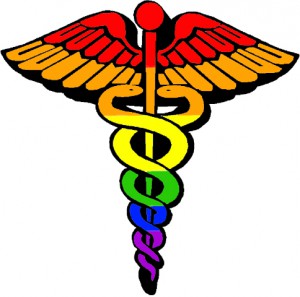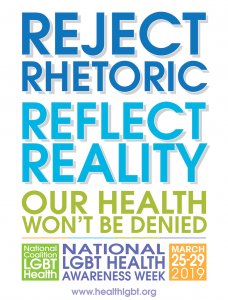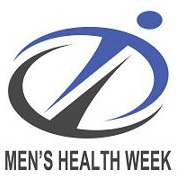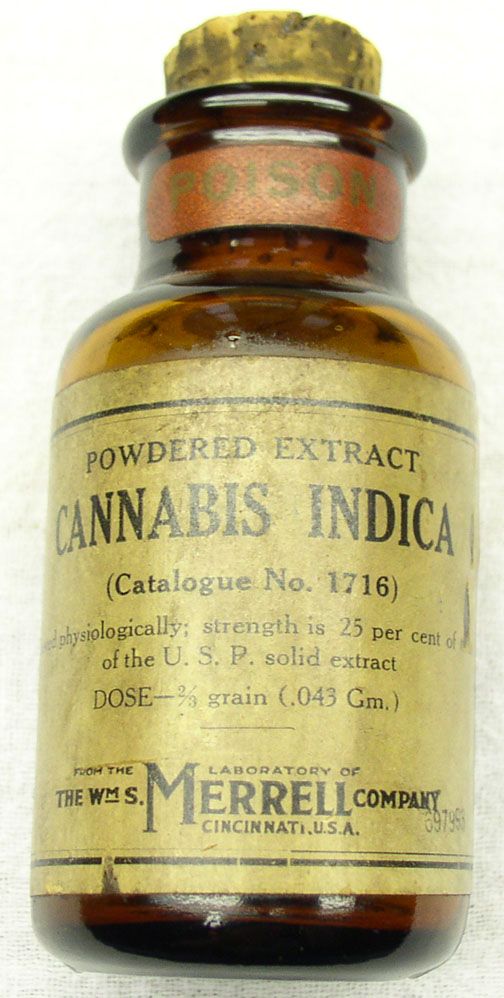Last Updated on January 30, 2020
The last week of March has been LGBT Health Awareness Week since 2003. We have explored some of the barriers to healthcare for the transgender community in previous blog posts, but it remains important to bring awareness to the unique healthcare needs of lesbian, gay, bisexual, and transgender people and the health disparities that continue to affect the lives of so many Americans.
 Experts report that LGBT people often avoid seeking out medical care or refrain from “coming out” to their healthcare provider. This compromises an entire community of lesbian, gay, bisexual, and transgender individuals who are at increased risk for several health threats when compared to heterosexual or cisgender peer groups: Gay men are at higher risk of HIV and other sexually transmitted infections; lesbians are less likely to get cancer screenings; transgender individuals are among the least likely to have health insurance along with risks from hormone replacement and atypical cancers. Even as youths, LGBT people are at higher risk of violence, depression, substance abuse, homelessness, and other suicide-related behaviors.
Experts report that LGBT people often avoid seeking out medical care or refrain from “coming out” to their healthcare provider. This compromises an entire community of lesbian, gay, bisexual, and transgender individuals who are at increased risk for several health threats when compared to heterosexual or cisgender peer groups: Gay men are at higher risk of HIV and other sexually transmitted infections; lesbians are less likely to get cancer screenings; transgender individuals are among the least likely to have health insurance along with risks from hormone replacement and atypical cancers. Even as youths, LGBT people are at higher risk of violence, depression, substance abuse, homelessness, and other suicide-related behaviors.
The Affordable Care Act (ACA) had helped over 10 million Americans gain insurance during the Obama administration, including many LGBT people. The ACA prohibited health insurance marketplaces from discriminating on the basis of sexual orientation and gender identity. The 2015 Supreme Court ruling of Obergefell v. Hodges recognizing marriage between gay and lesbian couples throughout the United States led to more married couples to access their spouse’s health insurance.
The Trump administration has since dismantled many protections for equal access to care for LGBT people. Shortly after Trump took office, regulations to ban discrimination in Medicare and Medicaid were stopped and the White House declined to enforce the ACA’s anti-discrimination mandate. Throughout his first two years, senior advisors for LGBT health were reassigned to less effective positions and questions regarding sexual orientation were removed from federal surveys. In late 2017, President Trump fired the Presidential Advisory Council on HIV/AIDS (PACHA) which concerned advocates believe is part of an “effort to erase LGBTQ people.” The mass dismissal followed six members resigning the previous summer, citing the Trump administration’s apparent disinterest in helping the HIV/AIDS community.
In January 2018, it was announced the Department of Health and Human Services (HHS) would form a new Conscience and Religious Freedom Division that would functionally allow doctors to refuse treatment for those that go against their religious beliefs — further limiting access to care and undermining the civil rights, health, and well-being of LGBT people, women seeking reproductive health services, and others. Since last year, HHS websites have removed pages that hosted information on LGBT health and related links, and changed language regarding the ACA’s ban on sex discrimination — specifically removing language about gender identity protections and transgender medical care. Trump’s HHS reportedly considered defining gender as binary, “either male or female, unchangeable, and determined by the genitals that a person is born with,” denying the existence of transgender and intersex people, in defiance of the scientific and medical evidence embraced by the American Medical Association and American Psychiatric Association. Additionally, the Trump administration eliminated references to inclusion and protection from discriminatory housing practices in the Department of Housing and Urban Development’s mission statement, and filed a brief with the U.S. Supreme Court arguing that the Civil Rights Act which prohibits discrimination based on “race, color, religion, sex, or national origin” does not protect individuals on the basis of gender identity, threatening transgender people’s right to be free from unequal treatment.
In President Trump’s 2019 State of the Union address, he asked Congress for a commitment to eliminate new HIV transmissions by 2030. This month, the administration began filling seats on the Presidential Advisory Council on HIV/AIDS — over a year after disbanding the group — and released a proposed budget that included $291 million for the Ending the HIV Epidemic plan in 2020 but also called for cutting 12% from HHS funding. The budget proposal also calls for massive $1.5 trillion cuts to Medicare and Medicaid which covers 25%-40% of Americans diagnosed with HIV, respectively, while also cutting $45 million from the Housing Opportunities for Persons with AIDS program which provides grants to communities for projects to address housing needs for those living with HIV/AIDS. The impact of cuts to public insurance programs and the safety net would not only negate many of the benefits gained from the addition of the HIV funding that has been proposed but could halt the progress made toward defeating the virus that disproportionately affects LGBT individuals.
 The LGBT community continues to rank among the most underserved populations in terms of healthcare. Homophobia/transphobia and stigma can negatively impact one’s ability to receive suitable care. Over 27% of transgender people in the U.S. report being denied healthcare. Mental health is a major concern for LGBT individuals often dealing with physical or emotional abuse, body dysmorphia, depression, or feeling unsafe at school or work, and there are still areas of the United States where finding sympathetic and appropriate help can be prohibitively difficult. If you are looking for a LGBT-friendly medical center, the Human Rights Campaign (HRC) has an interactive map with locations of over 1600 healthcare facilities in the United States. The HRC also has information on finding insurance for transgender-related healthcare, which can be a challenge for many transgender people even after the ACA.
The LGBT community continues to rank among the most underserved populations in terms of healthcare. Homophobia/transphobia and stigma can negatively impact one’s ability to receive suitable care. Over 27% of transgender people in the U.S. report being denied healthcare. Mental health is a major concern for LGBT individuals often dealing with physical or emotional abuse, body dysmorphia, depression, or feeling unsafe at school or work, and there are still areas of the United States where finding sympathetic and appropriate help can be prohibitively difficult. If you are looking for a LGBT-friendly medical center, the Human Rights Campaign (HRC) has an interactive map with locations of over 1600 healthcare facilities in the United States. The HRC also has information on finding insurance for transgender-related healthcare, which can be a challenge for many transgender people even after the ACA.
To further help those in need, NeedyMeds has a growing list of programs in our Diagnosis-Based Assistance database for transgender/gender non-conforming people that offer various forms of assistance such as financial aid or legal services. We also list academic scholarships available for LGBT youths looking to continue their education. NeedyMeds’ unique crowdfunding platform HEALfundr is also available for individuals trying to raise funds for their transition and other members of the LGBT community to receive appropriate healthcare. For more information, call our toll-free helpline at 1-800-503-6897 (open 9am to 5pm ET, Monday through Friday).




